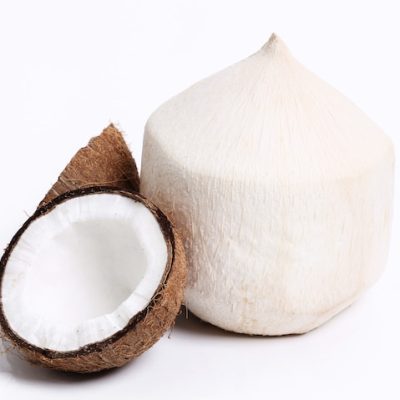Looking to become the best version of yourself? A great way to enhance your health is by ensuring you get enough Vitamin E. This vitamin is not just another item on the list; it stands out for its strong antioxidant properties that support your health daily.
Vitamin E is crucial for many essential bodily functions, and its benefits may surprise you with their variety and depth. It protects your skin from daily wear and tear and helps keep your heart healthy, acting as a silent champion behind the scenes.
Moreover, Vitamin E’s potential benefits extend to cognitive health, possibly aiding in maintaining your brain’s sharpness as you age. With the added possibility of boosting your immune system, this nutrient truly deserves a prominent place in your diet.
Ready to explore the many advantages of Vitamin E? Let’s uncover the secrets of this antioxidant powerhouse together.
Ever heard of antioxidants? These special compounds help shield your body from oxidative stress. When it comes to antioxidants, Vitamin E certainly stands out.
This vital nutrient plays a key role in neutralizing harmful free radicals, which are byproducts of everyday activities like digestion and exposure to environmental toxins. While free radicals are necessary in small amounts, they can cause damage when their levels rise too high.
They act like tiny thieves, stealing electrons from other molecules in a process called oxidation, leading to damaged cells, proteins, and even DNA. This is where Vitamin E comes in. It neutralizes free radicals by donating one of its electrons, preventing further damage and maintaining cell health.
This essential process, often overlooked, is crucial for keeping your body balanced and healthy. The antioxidant benefits of Vitamin E extend beyond cellular protection, leading to numerous health advantages throughout your body, from your skin to your heart to your brain.
When you think of Vitamin E, you might first consider its role in skin health, and for good reason! Vitamin E is a powerful ally in maintaining your skin’s health and vitality.
Your skin’s barrier is its first line of defense against environmental factors, and Vitamin E helps strengthen this barrier, particularly against harmful UV rays. It acts as a shield, protecting your skin cells from damage that can lead to premature aging and skin cancer.
However, while Vitamin E is beneficial, it doesn’t replace the need for broad-spectrum sunscreen. If you’ve ever had a cut or scrape, you may have noticed products containing Vitamin E. This is because Vitamin E can aid in the wound healing process, helping to speed up cell regeneration and reduce the appearance of scars.
As for aging, we all face it, but Vitamin E might be a valuable ally in this battle. Its antioxidant properties help protect your skin from damage, including wear and tear that can lead to wrinkles and fine lines. By combating free radicals, Vitamin E may help keep your skin looking youthful and radiant for longer.
Your heart will appreciate the addition of Vitamin E to your diet. The benefits of Vitamin E for cardiovascular health are extensive, making it a vital nutrient in the fight against heart disease.
One way Vitamin E supports your heart is by helping to balance cholesterol levels. Cholesterol itself isn’t bad; it’s necessary for building cells. The problem arises with too much ‘bad’ cholesterol, known as LDL, which can lead to plaque buildup in your arteries and increase your risk of heart disease.
Vitamin E acts as a natural defense by preventing LDL cholesterol from oxidizing, which is when it becomes most harmful. By keeping LDL cholesterol in check, Vitamin E plays a crucial role in maintaining cardiovascular health.
Additionally, studies suggest that Vitamin E may help prevent blood clots, which can lead to heart attacks or strokes, by making your blood less sticky. Ongoing research is exploring Vitamin E’s role in reducing inflammation, a key factor in plaque buildup in arteries.
Clearly, adding Vitamin E to your diet could greatly benefit your heart. Nobody likes blurry vision, right? Vitamin E may also be essential for maintaining eye health as you age.
One major concern regarding eye health is the risk of age-related conditions like macular degeneration and cataracts, which are leading causes of vision impairment and blindness in older adults. The good news is that Vitamin E may help protect against these potential threats.
Research indicates that Vitamin E’s antioxidant properties can shield the cells in your eyes from the damaging effects of free radicals, particularly in the context of macular degeneration, where the central part of the retina deteriorates. The antioxidants in Vitamin E may help slow this process by neutralizing harmful free radicals.
Moreover, Vitamin E might also reduce the risk of cataracts, which are cloudy areas in the eye’s lens that can interfere with vision. Its antioxidant activity may help prevent or slow down cataract formation by protecting the lens from oxidative damage.
While these findings are promising, more research is needed to fully understand Vitamin E’s potential benefits for eye health. In our pursuit of optimal health, we must not overlook the importance of maintaining a healthy brain.
Research suggests that Vitamin E may offer protective effects against cognitive decline, which refers to a gradual decrease in memory and thinking skills. While some cognitive decline is a normal part of aging, it can progress into more serious conditions like dementia or Alzheimer’s disease.
Here’s where Vitamin E might play a role. Known for its antioxidant properties, Vitamin E could be crucial for brain health, as the brain is particularly vulnerable to oxidative stress caused by free radicals.
As one of the most potent antioxidants, Vitamin E may help neutralize these free radicals, protecting brain cells from damage. Several studies have linked higher Vitamin E intake to a lower risk of cognitive decline as we age. Some research even suggests that Vitamin E could slow the progression of diseases like Alzheimer’s, though more studies are needed to confirm these findings.
Additionally, since the brain is a fatty organ and Vitamin E is fat-soluble, it may be particularly effective in protecting fatty structures, further emphasizing its potential importance for brain health.
Our immune system is our body’s natural defense against infection and disease, making it essential to keep it strong and healthy. Interestingly, Vitamin E may help maintain and even boost immune health.
As we age, our immune response can weaken, making us more susceptible to infections and longer recovery times. One significant benefit of Vitamin E is its potential to offset some of these age-related changes in the immune system.
Once again, Vitamin E’s antioxidant properties are central to this benefit. By protecting cells from free radical damage, Vitamin E helps ensure that our immune cells, like T cells, function optimally. Research has shown that Vitamin E can enhance T cell function, making them more effective at responding to infections, which is especially important for older adults.
In addition to its impact on T cells, Vitamin E also stimulates the production of natural killer cells, which seek out and destroy germs and cancer cells, and enhances the production of B cells, which produce antibodies to eliminate bacteria.
Vitamin E is readily available in a variety of delicious and nutritious foods. Incorporating these into your diet can be an enjoyable way to ensure you’re getting enough Vitamin E.
Let’s explore some dietary sources:
– Nuts and Seeds: Almonds, sunflower seeds, hazelnuts, and pine nuts are excellent sources of Vitamin E. They make a perfect snack or can be added to salads, yogurts, or oatmeal for a healthy crunch.
– Leafy Greens: Spinach, Swiss chard, and turnip greens are great plant-based sources of Vitamin E. Include them in salads, stir-fries, or smoothies for a nutritious boost.
– Vegetable Oils: Sunflower, wheat germ, and safflower oils are among the highest in Vitamin E content. Use these oils in cooking or salad dressings to enhance your intake.
– Fruits: Certain fruits like avocados and kiwis also provide a good amount of Vitamin E. Avocados can be used in salads, sandwiches, guacamole, or smoothies, while kiwis make a refreshing snack or salad addition.
– Vegetables: Broccoli and butternut squash are notable for their Vitamin E content. Roast, steam, or add them to stir-fries for a nutritious meal.
– Fish: Certain fish, such as rainbow trout and Atlantic salmon, are good sources of Vitamin E. They can be grilled, baked, or pan-seared for a delicious, healthy main course.
A varied diet is key to ensuring you get a broad spectrum of nutrients, not just Vitamin E. Try incorporating a variety of these foods into your meals to enjoy the many benefits of Vitamin E, one bite at a time. Eating your way to health has never been so delicious!
Vitamin E supplements can help you meet your daily recommended intake, especially for those who struggle to absorb fat-soluble vitamins due to certain health conditions. However, it’s essential to approach supplementation with caution.
While supplements can be beneficial, obtaining Vitamin E through a varied and balanced diet is typically the best approach. Foods provide a complex network of vitamins, minerals, dietary fibers, and other beneficial substances that are hard to replicate with supplements.
Moreover, higher doses of vitamin supplements aren’t always better. Excessive Vitamin E can lead to side effects like nausea, diarrhea, stomach cramps, fatigue, weakness, headache, blurred vision, rash, and even bruising and bleeding.
Vitamin E supplements may also interact with other medications, such as those for heart disease or cancer treatments. The upper limit for Vitamin E intake for adults is set at 1,000 milligrams, and it’s crucial not to exceed this without medical supervision, as it could lead to “Vitamin E toxicity.”
Consult with a healthcare provider before starting a Vitamin E supplement if you think you’re not getting enough from your diet or if you have a medical condition affecting fat absorption. They can assess your needs, consider potential interactions with medications, and guide you on the appropriate dosage.
While the benefits of Vitamin E are exciting, it’s important to maintain balance. Approach supplementation mindfully, understanding its potential advantages and disadvantages under the guidance of a healthcare provider.
Balancing enthusiasm with caution can help you maximize the benefits of Vitamin E without risking unwanted side effects. The advantages of Vitamin E are extensive, and this essential nutrient deserves a place in your health-conscious lifestyle.
It’s all about finding the right balance and ensuring you provide your body with the nutrients it needs to function at its best. Remember, a well-rounded diet and a healthy lifestyle are your best bets for achieving optimal health.










